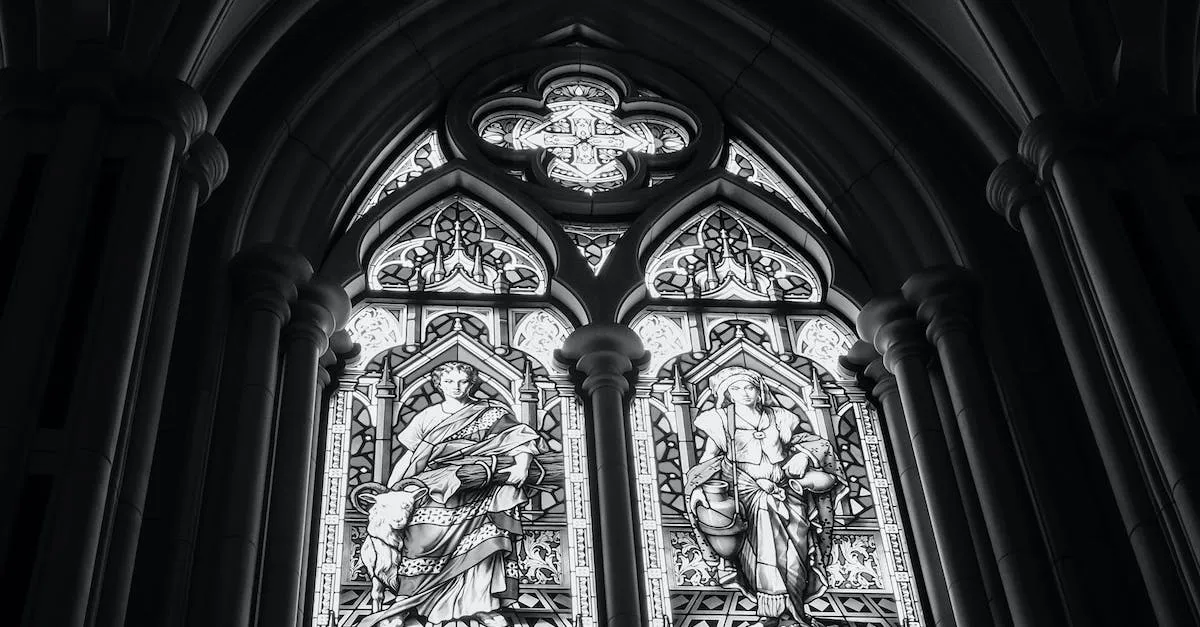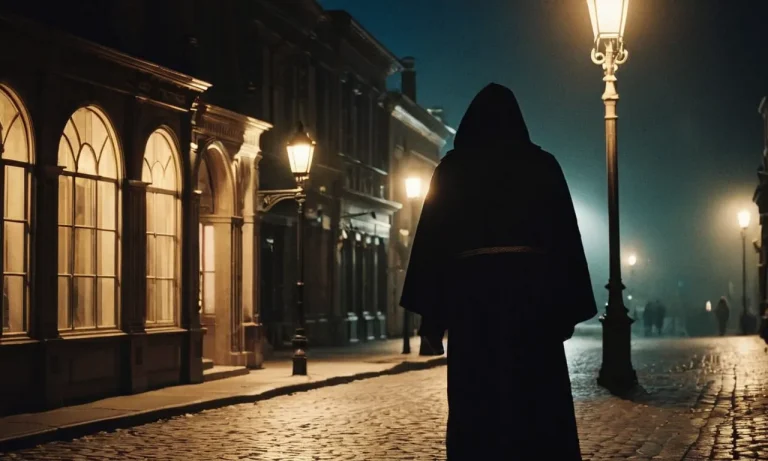Is His Dark Materials Really Anti-Christian?
The fantasy book series His Dark Materials by Philip Pullman has often been accused of promoting anti-Christian themes and values. But is this reputation warranted? Let’s take a closer look.
If you’re short on time, here’s a quick answer: While His Dark Materials portrays a negative depiction of a fictional corrupt Christian church, the author has clarified that the books are not intended as an attack on religion itself or Christian beliefs.
Criticisms of the Church in His Dark Materials
The Magisterium Represents Religious Oppression
One of the main criticisms directed towards the Church in Philip Pullman’s His Dark Materials trilogy is that the portrayal of the Magisterium, the ruling body within the story, represents religious oppression.
The Magisterium is depicted as a powerful institution that seeks to control knowledge and suppress free thought. This critique draws parallels to real-life instances where religious institutions have been accused of limiting intellectual freedom and stifling dissenting opinions.
In the world of His Dark Materials, the Magisterium actively seeks to suppress any information that challenges its authority. This is seen through the censorship of certain books and the punishment of scholars who question the Church’s teachings.
By presenting the Church in this manner, Pullman raises important questions about the potential dangers of unchecked religious authority and the importance of intellectual freedom.
“Killing God” and Other Anti-Religious Imagery
Another criticism of His Dark Materials is the presence of anti-religious imagery, particularly the concept of “killing God.” In the final book of the trilogy, the protagonist, Lyra, and her allies work towards overthrowing the Authority, a figurehead who is seen as the embodiment of oppressive religious power.
This symbolic act has been interpreted by some as an attack on Christianity.
However, it is important to note that Pullman himself has clarified that his intention was not to attack Christianity or any specific religion, but rather to critique the abuse of power by religious institutions.
His Dark Materials explores themes of freedom, personal agency, and the value of questioning authority. It challenges readers to examine their own beliefs and consider the potential consequences of blindly following religious doctrines.
While some religious groups have criticized His Dark Materials for its portrayal of the Church, it is worth noting that the books have also been praised for their thought-provoking exploration of complex themes.
Pullman’s work encourages readers to engage critically with religious institutions and the role they play in society, sparking important conversations about faith, power, and the pursuit of knowledge.
Pullman’s Perspective and Defense
The Author’s Personal Background
Understanding Philip Pullman’s perspective on religion and his portrayal of Christianity in the His Dark Materials series requires a closer look at his personal background. Pullman was raised in a religious household, with his father being an Anglican clergyman.
However, as he grew older, Pullman began to question the teachings and traditions of the church.
It is important to note that Pullman does not identify himself as an atheist but rather as an agnostic. This distinction is crucial in understanding his approach to religion in his novels. Pullman’s intention is not to attack or undermine Christianity but rather to explore and challenge the dogmatic aspects that he believes can stifle individuality and critical thinking.
His Dark Materials, therefore, should be seen as a work of fiction that delves into philosophical and theological themes, rather than a direct attack on Christianity or any other religion.
His Stance Against “Constraints” of Religion
Pullman’s criticism of organized religion and its perceived constraints is a central theme in the His Dark Materials series. The author’s main concern lies in the potential suppression of free thought and individual expression that can sometimes arise from religious institutions.
Through the portrayal of the Magisterium, a powerful religious authority in the series, Pullman raises questions about the potential dangers of religious organizations having too much control over society.
This critique is not limited to Christianity but extends to any religion that seeks to impose its beliefs and values on others without allowing for individual autonomy.
It is worth noting that Pullman has received both praise and criticism for his portrayal of religion in His Dark Materials. Some argue that his depiction is unfair and misrepresents the positive aspects of faith, while others appreciate the thought-provoking nature of his work.
Ultimately, it is up to the readers to engage with Pullman’s ideas and form their own opinions on the matter. Whether or not one agrees with Pullman’s perspective, it is undeniable that his novels have sparked important discussions about the role of religion in society and the importance of individual freedom.
Deeper Themes Beyond Religion
While it is true that religion plays a significant role in the world of His Dark Materials, it is important to understand that the series explores much deeper themes beyond mere religious critique. The story delves into various aspects of human existence, including coming of age, philosophy, and morality.
Coming of Age and Adolescence
One of the central themes in His Dark Materials is the journey of the main characters as they navigate through the trials and tribulations of adolescence. The series beautifully captures the complexities of growing up, the search for identity, and the challenges one faces when transitioning from childhood to adulthood.
The struggles faced by Lyra, the protagonist, resonate with readers and viewers alike. From her curiosity and thirst for knowledge to her awakening sense of responsibility, Lyra’s character growth mirrors the experiences of many young individuals.
This relatability allows the audience to connect with the story on a personal level, regardless of their religious beliefs.
Philosophy and Morality
Beyond its exploration of religion, His Dark Materials delves into profound philosophical and moral questions. The series prompts viewers and readers to contemplate the nature of good and evil, the power of knowledge, and the consequences of our choices.
The nuanced portrayal of characters such as Mrs. Coulter and Lord Asriel challenges the audience’s understanding of morality. These complex characters blur the lines between right and wrong, forcing us to question the black-and-white notions often associated with traditional religious narratives.
The philosophical undertones of the series encourage critical thinking and introspection, allowing viewers and readers to engage with the material on a deeper level. It is through this exploration of philosophical and moral themes that His Dark Materials transcends its religious backdrop and becomes a thought-provoking work of literature.
So, while the series does touch upon religious themes, it is essential to recognize that His Dark Materials offers much more than a simple critique of Christianity. It invites us to delve into the complexities of human existence, embracing the diverse range of experiences and perspectives that shape our understanding of the world.
Conclusion
In closing, while His Dark Materials takes a critical view of corrupt religious authority, it contains many profound themes beyond just targeting Christianity. The books explore complex philosophical questions about morality, wisdom, and human nature.
By condemning the entire series as “anti-Christian,” we miss an opportunity to appreciate its literary depth. While some religious imagery may be disturbing, thoughtful readers can look beyond the surface to find meaning in its broader messages.








